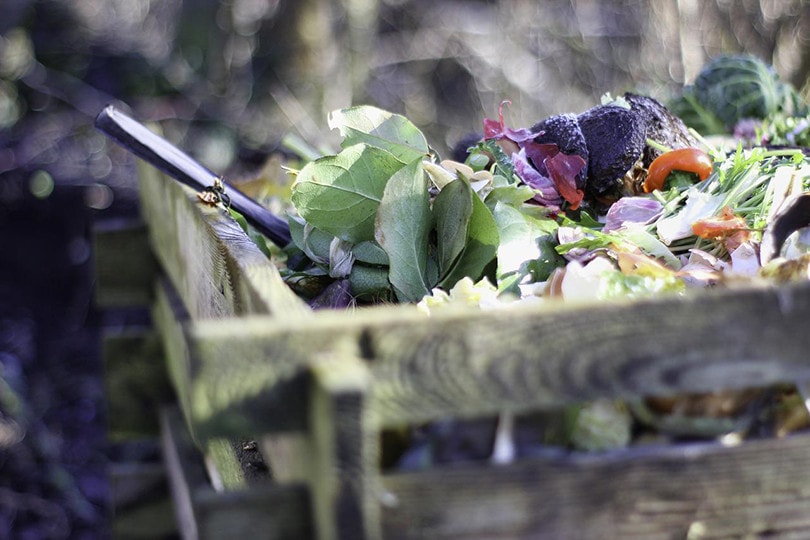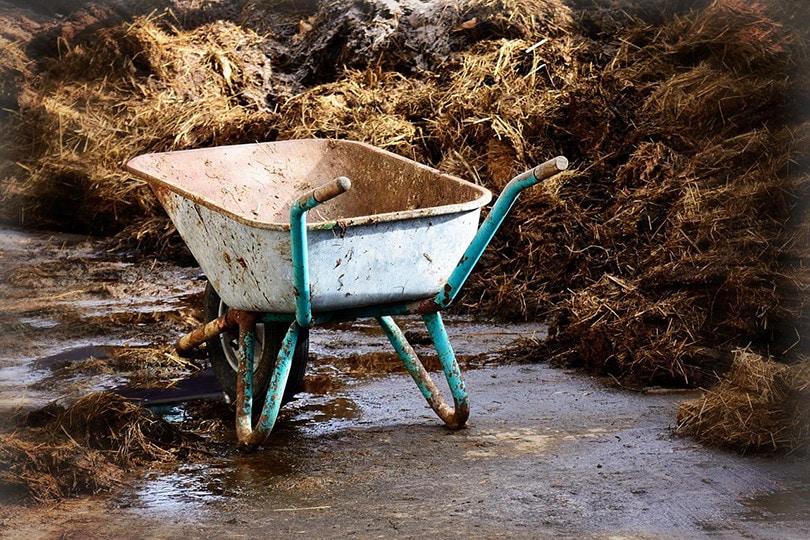Can You Compost Weeds? What You Need To Know!
-
Shea Cummings
- Last updated:

Composting is an incredible way to reuse organic material from your garden and non-meat scraps from the kitchen. Even grass clippings and weeds can be added to your compost. By letting—and assisting—nature to do its thing, you’re getting beautiful mulch to help your garden thrive.
Some gardeners get apprehensive about putting weeds in their compost, though. It’s a normal reaction because when we think of weeds, we think of an invasive plant that chokes out what we’re trying to grow, thus belonging in the garbage. But many weeds are full of nutrients that benefit a compost pile.
With some weeds, there is the risk the spreading if not done right. Whether you’re composting them or not, you want to ensure you’re pulling weeds from your garden before they go to seed. As a general rule, you want to compost them before going to seed, but it’s not a big deal in some cases.
Weeds in Hot Composting
Many gardeners will argue that hot composting is the only correct way to compost. Whether you agree with that or not, it’s one of the most common ways. Because of the temperatures that a hot compost will reach, there’s no reason to worry about seeds or germs surviving. So, as long as you maintain it properly, a hot compost heap is the most worry-free way to compost weeds. Here are a few tips to ensure your compost is the best it can be.
- Pile-turning: There are cool spots in a compost heap that occur naturally. As you mix the pile, you ensure that all of the compost reaches adequate temperatures to kill any weed seeds.
- Time: Composting doesn’t happen overnight. So, once you have your desired pile, don’t continue adding new material to it. Keep turning it until it is broken down and ready to spread. Suppose you add new material to a partially composted heap. In that case, it slows down the process, and you may end up spreading uncomposted material.
- Compost your garden: Now that you’ve got some superfood for your plants, it’s time to spread it in the garden. But if your garden has any weeds, you’ll be feeding them this food, too. So, weed your garden beforehand to save yourself from extra stubborn weeds.

Weeds in Cold Composting
Unlike its counter-type, cold composting doesn’t involve any stirring. With this style, you will use a special composter. It allows you to take the compost from the bottom, which is ready to spread while adding new material to the top of the pile. This type of composting takes much less effort. However, it takes longer and isn’t ideal for composting weeds. Using weeds is not impossible with cold composting, though. Here are a few tips to keep in mind if you’re a cold composter.
- Pernicious weeds are a no-no: Certain perennial weeds will not die in a cold compost because they require a lot of heat to kill. Some common weeds to keep out of your compost are buttercups, quack grass, or morning glory. In addition to these weeds, you’ll also want to keep out any plants that spread with runners.
- No seeds: Because hot compost reaches temperatures of up to 160 degrees, no seeds survive. This is not the case with cold compost. The temperature won’t get hot enough to kill the seeds, and once you spread the compost, you’ll be spreading fresh, well-fed weeds.
- Prebake the weeds: If you don’t want any weeds to go to waste, it’s possible to kill the seeds before composting. This is accomplished by prebaking them, which can be done in several ways. Solarizing is a common method used to kill weeds. You put them in a black plastic bag and leave the bag in the sun for a few days. Another technique is laying them out on a metal tray in the sun. Once crispy, the seeds are dead, and they’re ready for the compost pile.

Weeds as Liquid Fertilizer
If you don’t have a compost pile or don’t want to risk adding weeds, you can use them by making them into liquid fertilizer. You need a large, coverable container, weeds, and water. For example, fill a 45-gallon barrel with the weeds from your garden. Once it’s full of weeds, fill it with water and cover for around two weeks. When using it, dilute the liquid to about 15 to 1 for watering.
After using a bunch of it, you can fill the barrel with water again, and the water will continue to leach nutrients out of the weeds for around 4–6 months.
 Closing Thoughts
Closing Thoughts
There’s no absolute right or wrong answer to whether you should compost weeds. On the one hand, many weeds are filled with nutrients that provide a healthy boost to your compost. On the other, they require extra work to ensure they aren’t doing more harm than good—especially if you’re using cold compost. If you’re willing to put in the work to learn a bit about composting weeds, they will make a great addition to your pile.
Featured Image Credit: photoAC, Pixabay
Contents
